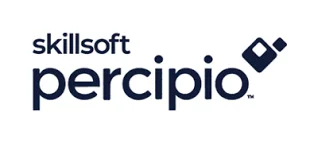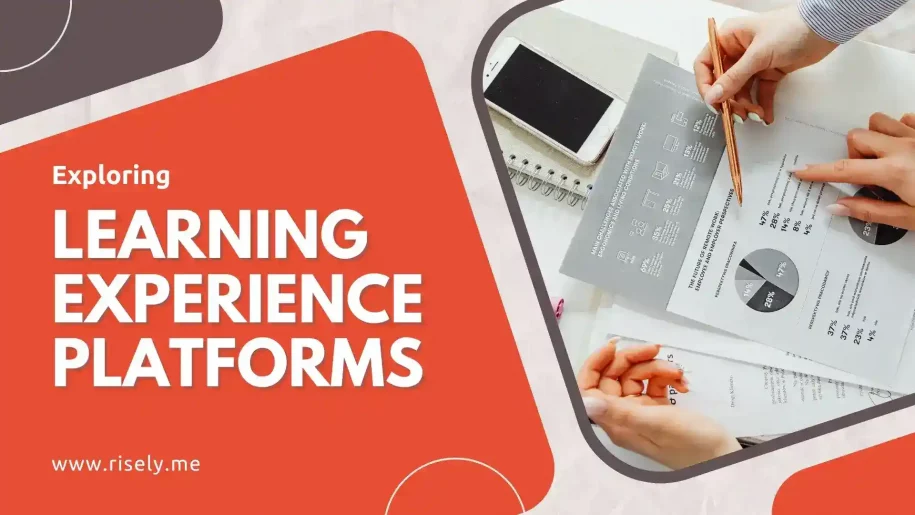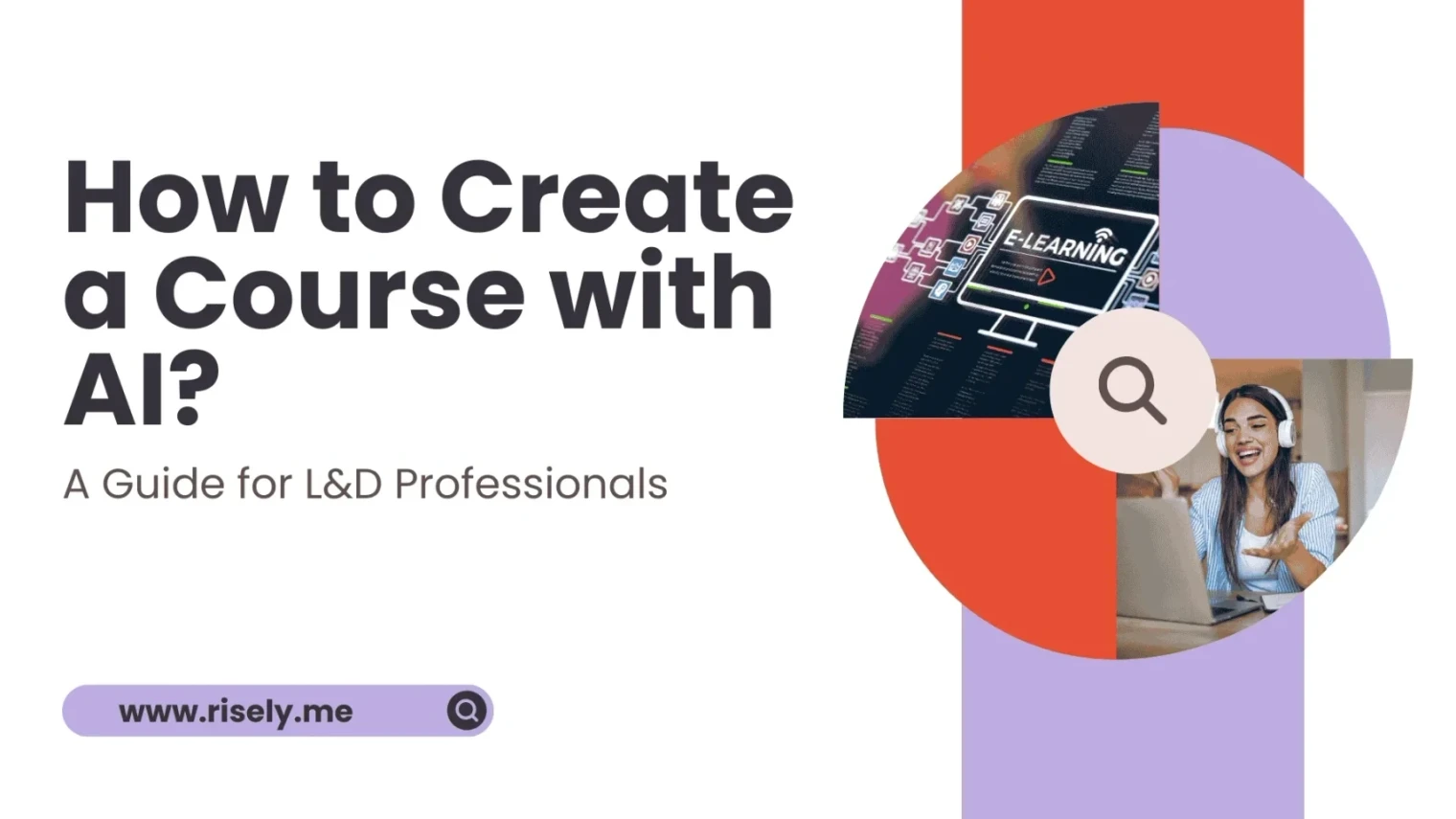Learning Experience Platforms: A Brief Introduction
When it comes to technology that supports workplace learning, our minds race to LMS. The humble learning management systems support a plethora of courses, skill databases, and administrative reports for the entire workplace. But there’s a new entrant in the market. It’s known as the learning experience platform (LXP) and focuses on the experience that learning creates for the end users. It’s not just an administrative tool for the HR and L&D heads; instead, it emphasizes making learning more user-centric with solid experiences. Let’s discover more about LXPs!What is a learning experience platform?
Learning experience platforms are software designed to support corporate learning through various stages by doubling down on creating good daily learner experiences. They help L&D teams create curated learning content that meet their teams’ unique needs, prepare a digital learning environment, and function as complete learning management systems. LXPs change this by focusing on the end-user instead through their modern features that bring about a great UI, personalization, and even gamification to keep learners engaged. This autonomy empowers learners to take charge, as they can decide what they want to learn, when they want to learn, and how it will happen. Moreover, these systems can mostly integrate with the existing operational systems of your organization’s HR stack, thus enabling better access and usage.Essential features of a good learning experience platform (LXP)
- Advanced Personalization: Utilize artificial intelligence to provide personalized content recommendations based on individual learning preferences, past behaviors, and career goals.
- Microlearning: Offer bite-sized learning modules that are easy to consume and fit into learners’ busy schedules, promoting continuous learning.
- Discussion Forums: Provide platforms for learners to engage in discussions, share insights, and collaborate with peers, fostering a sense of community and collaborative learning.
- Peer Reviews and Ratings: Enable learners to review and rate content, helping others identify valuable resources and enhancing the quality of learning materials.
- Badges and Certifications: Incorporate gamification elements like badges, points, and certifications to motivate learners and recognize their achievements.
- Integration with Existing Systems: Ensure compatibility and seamless integration with existing enterprise systems, such as HRIS, LMS, CRM, and other tools, creating a cohesive learning ecosystem.
- Comprehensive Insights: Offer advanced analytics and reporting tools that provide insights into learner behavior, engagement levels, content effectiveness, and learning outcomes.
How can a learning experience platform help you?
Learning experience platforms bring several benefits to your team. Primarily, they can help you with:Creating personalized learning paths
Personalized learning is the defining feature of effective learning. It’s not just about creating a list of modules that follow one after another; we are speaking of an experience where your employee is at the center of everything. The training plan is designed with their needs and challenges in mind. Learning experience platforms are solid support in this movement, as they leverage AI to integrate your company objectives and an employee’s personal goals to create personalized learning experiences.Curate learning content
A handbook here, a webinar here, and another course module over there—scattered training material bugs the learner experience big time. Learning experience platforms allow L&D teams to collate widespread resources into one place and distribute them effectively according to the needs of the individual users. This wide range of resources ensures that employees will access the most relevant and up-to-date information.Making learning a social initiative
Social interaction, the impact of peers and managers, and opportunities for recognition are critical to the success of learning initiatives. Learning experience platforms bring these benefits to your table with their collaborative features. These may include a shared wall of honor for high achievers, shareable certificates, discussion forums where employees learn from each other, etc.Enhance engagement and motivation
One of the most common challenges in an L&D plan is the lack of engagement from individual employees, which is bound to happen when the courses are not designed with their needs in mind. Boring video lectures, or long workshops are a matter of the past, we are moving toward a world where learning is hyper personalized and does not steal time away from work. Instead, it integrates seamlessly into workflows, provides support at the point of need, and stimulates learning. Learning experience platforms are working on this by including gamified features such as quizzes, simulations, and real-world situations, making learning more experiential and applicable regularly.Analyze data with ease and at scale
Learning experience platforms make the lives of HR and L&D teams easier with their impactful dashboards that collect and report valuable data points for the entire organization. LXPs provide comprehensive analytics that allows L&D and HR teams to track learner progress, engagement levels, content effectiveness, and learning outcomes. These insights help you make data-driven decisions to enhance training programs. Further, LXPs can integrate with existing HR systems, such as HR Information Systems (HRIS) and Learning Management Systems (LMS), creating a cohesive ecosystem for managing employee development aspects within your L&D strategy.Other Interesting Reads
Learning experience platform vs LMS: What’s the difference?
Sounds similar? They are not! LXPs offer significant advantages over the conventional LMS in many ways. While a conventional LMS is designed with improved reporting and analysis as the objective, LXPs take things further by shifting the focus toward the experience your learners are dealing with and creating personalized paths where they remain engaged and satisfied. We have explored some points of difference in learning experience platforms vs LMS below:| Basis | LXP | LMS |
|---|---|---|
| Focus | LXPs are user-centric with focus on content discovery | LMSs primarily manage and administer training programs |
| Content Management | LXPs aggregate content from multiple sources | LMS platforms deliver structured courses |
| Personalization | LXPs leverage AI and machine learning to personalize learning experiences | LMSs offer standardized learning paths set by the admins |
| Engagement | LXPs often incorporate gamification elements | Engagement methods on LMS are limited |
| Analytics | LXPs share insights into learner behavior, engagement levels, and content effectiveness | LMS analytics are focused heavily on tracking completion and compliance |
| Integrations | LXPs can integrate with various tools and platforms, including LMSs | LMS platforms often integrate with enterprise systems like HRIS and ERP |
What are the best learning experience platforms?
Learning Experience Platforms (LXPs) are a shift from the traditional Learning Management Systems (LMS), which garnered a bad reputation over the years due to their super focus on the administrative side of things. Let’s have a look at how the big players in the league are doing this with great features:Degreed
Degreed is a learning experience platform that focuses on skills-based learning. It considers your present skills and learning gaps and creates a personalized map to guide you toward professional objectives. For L&D teams, it means results that come faster and cheaper. And for employees, it means an experience that revolves around their needs. The attached content marketplace further broadens access to resources within the platform.
Unique features: AI-powered scalable upskilling at speed for organizations
G2 Rating: 4.2
Pricing: Available upon request

EdCast
Edcast is an employee experience platform that focuses on learning and building skills. In its own words, the platform facilitates the retention and attraction of high-quality talent that companies love. Edcast uses expert content to enable growth in advanced areas relevant to the employees, all shaped into a hyper-personalized learning journey that fuels mobile careers.
Unique features: Improves employee experience by embedding learning in the flow of work
G2 Rating: 4.1
Pricing: Available upon request

LinkedIn Learning
LinkedIn Learning is an educational platform for professionals with multiple fields of work and years of experience. It uses AI to suggest courses based on your profile, including your work roles, years of experience, trending industry topics, etc. Moreover, you can see what courses your connections take and connect over learning. Eventually these certifications contribute directly to the career development of your employees as they can be easily showcased and shared with global acceptance.
Unique features: Goes into functional job skills as well as people skills
G2 Rating: 4.4
Pricing: Starting from $29.99

Cornerstone
Cornerstone presents itself as the only platform you need for solid learner experiences. Its primary focus is on future readiness; as the world is changing, they want you to keep up, too. This is enabled through unique features in its learner experience platform, such as measuring the workforce readiness gap and keeping workforce agility as the #1 goal in your organization’s development journey. AI adds to this journey by building personalized learning plans for the employees and providing top-notch learning recommendations.
Unique features: Focuses on closing the workforce readiness gap for future performance
G2 Rating: 4.1
Pricing: Custom quotes available upon request

Percipio
Percipio by Skillsoft is an online learning experience platform driven by AI that enables skill transformation for organizations. The core areas of focus include reskilling and upskilling the current workforce to be up-to-date with the challenges and opportunities to come in the next years and decades. The learner experience platform helps organizations measure and track skill repositories in the teams. Based on these assessments, you can find gaps and plan initiatives to create a resilient workforce in your organization with the help of blended learning modes available on the platform.
Unique features: AI-driven emphasis on skill building across the organization
G2 Rating: 4.1
Pricing: Available upon request

Conclusion
Learning experience platforms can add much value to your employee learning journeys. They can be the next step toward a solid learning and development strategy that creates an amazing learning journey for your organization. The key is understanding how these features blend in with your existing learning mechanisms and building on top of them. Remember your goals and choose the right learning experience platform to keep growing.Download your free copy of Risely’s Training and Development Plan Template
Start growing with your team effectively with the help of free L&D resources by Risely.
How to Create a Course with AI: A Guide for L&D Professionals
How to Create a Course with AI: A Guide for L&D Professionals According to a McKinsey survey(1), only 11% of…
How to build a Learning and Development Action Plan ft Katie Greenwood
How to build a Learning and Development Action Plan ft Katie Greenwood Does your company’s Learning and Development (L&D) strategy…
Generative AI for Learning and Development: Getting Started
Generative AI for Learning and Development: Getting Started In 2024, organizations spent $401 billion globally on corporate training(1), yet 70%…
Future proofing a learning strategy for organizations with Inna Horvath
Future Proofing a Learning Strategy for Organizations with Inna Horvath With the advent of AI, everyone’s anticipating changes. L&D leaders…
What is Immersive Learning? A New Era in Education
In this blog, you’ll learn what is immersive learning and how it is changing training, increasing engagement, and influencing the…


